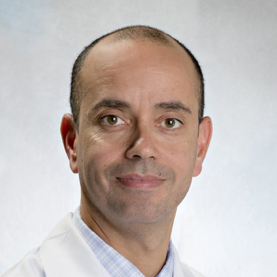
Driving with arthritis pain: Stay comfortable — and safe — behind the wheel

Daily cup of coffee may prevent afib recurrence

Gene-editing therapy lowers harmful blood fats in early study

What is EMDR therapy, and who can it help?

GLP-1 drugs versus bariatric surgery for treating obesity

Two dumbbells, three exercises, and 10 minutes

Easing the emotional burden of IBS

Modify your push-ups to meet your fitness level

What is long QT syndrome?

Stroke survivors may benefit from very low LDL levels

Hicham Skali, MD, MSc, FACC
Contributor
Hicham Skali, MD, MSc, FACC, is a staff cardiologist, a member of the Non-invasive Cardiovascular Imaging Program at Brigham and Women’s Hospital (BWH), and at Brigham and Women’s/ Massachusetts General Health Care Center at Foxborough. He is also the Associate Medical Director of the BWH Cardiac Rehabilitation program. Dr. Skali is an instructor in Medicine and Radiology at Harvard Medical School.
Dr. Skali received his medical degree from University Hassan II/Faculté de Medicine de Casablanca in Morocco. He completed an internal medicine residency and a cardiovascular medicine fellowship at St. Elizabeth’s Medical Center in Boston, followed by a cardiac imaging fellowship at BWH. Dr. Skali is certified as a diplomat in Internal Medicine and Cardiovascular Diseases, as well as board certified in nuclear cardiology and echocardiography.
Dr. Skali is also an associate director of the Cardiac Imaging Core Laboratory, and a senior member of the Clinical Endpoints Center at BWH. His research focuses on understanding the complex interactions between clinical and imaging biomarkers, as well as cardiovascular mortality and morbidity in high-risk populations with diabetes or kidney diseases. He has authored over 90 peer-reviewed publications.
Dr. Skali is working with ABT associates and AHRQ (Agency for Healthcare Research and Quality) as the Principal Investigator on the TAKEHeart Project designed to help increase referral to and utilization of Cardiac Rehab.
Posts by Hicham Skali, MD, MSc, FACC

Driving with arthritis pain: Stay comfortable — and safe — behind the wheel

Daily cup of coffee may prevent afib recurrence

Gene-editing therapy lowers harmful blood fats in early study

What is EMDR therapy, and who can it help?

GLP-1 drugs versus bariatric surgery for treating obesity

Two dumbbells, three exercises, and 10 minutes

Easing the emotional burden of IBS

Modify your push-ups to meet your fitness level

What is long QT syndrome?

Stroke survivors may benefit from very low LDL levels



